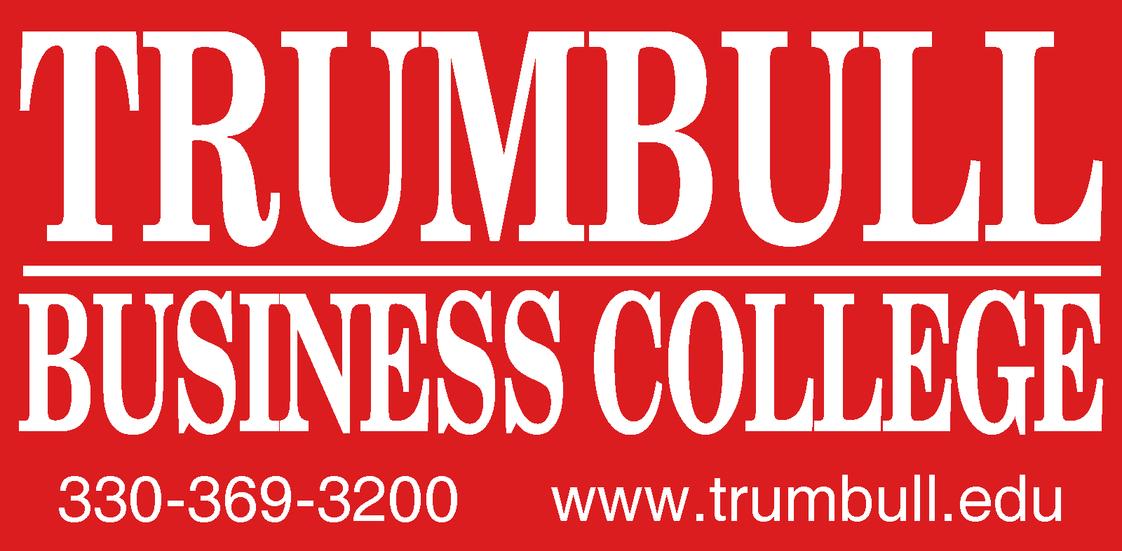- At Trumbull Business College you can earn an Associate Degree in two years and a diploma in as little as one year. Your skills will determine your future. So, whether you are interested in a new career or in upgrading your skills for the job you have, now is the time to make changes.
School Highlights
Trumbull Business College served 192 students (72% of students were full-time).
The college's student-teacher ratio of 11:1 was lower than the state community college average of 22:1.
Minority enrollment was 28% of the student body (majority Black), which was less than the state average of 38%.
School Overview
Trumbull Business College
(OH) Community College Avg.
Carnegie Classification
Associates Colleges
Baccalaureate/Associate's Colleges: Mixed Baccalaureate/Associate's
Institution Level
Less than 2 yrs
At least 2 but less than 4 years
Institution Control
Private, for profit
Private not-for-profit
Total Faculty
18 staff
93 staff
Student Body
Total Enrollment
192 students
757 students
Student-Teacher Ratio
11:1
22:1
# Full-Time Students
139 students
397 students
# Part-Time Students
53 students
360 students
# Enrollment Undergraduate
214 students
313 students
# Full-Time Undergraduate Students
139 students
385 students
# Full-Time Graduate Students
n/a
10 students
# Part-Time Undergraduate Students
n/a
434 students
# Part-Time Graduate Students
n/a
3 students
Total Dormitory Capacity
n/a
425 students
% Asian
n/a
4%
% Hispanic
4%
6%
% Black
23%
15%
% White
72%
62%
% Hawaiian
n/a
2%
% Two or more races
1%
4%
% Non Resident races
n/a
1%
% Unknown races
n/a
6%
Diversity Score
0.43
0.58
College Completion Rate (Students who graduate in less than 4 years)
26%
22%
College Completion Rate (Students who graduate in 4 years or more than 4 years)
n/a
22%
Average Graduate Earnings (10 Years)
$21,700
$31,900
Tuition and Acceptance Rate
Private State Tuition Fees
$12,389
$14,014
% Students Receiving Some Financial Aid
100%
92%
Median Debt for Graduates
$23,896
$20,581
Median Debt for Dropouts
$6,334
$7,090
Acceptance Rate
95%
80%
SAT Reading
n/a
460
SAT Math
n/a
475
SAT Writing
n/a
465
ACT Composite
n/a
21
ACT English
n/a
20
ACT Math
n/a
20
Source: 2020 (or latest year available) Integrated Postsecondary Education Data System (IPEDS) , School Administrators
School Notes
- Trumbull Business College offers two-year associate degrees in: - Accounting - Business and Office Administration - Computer Applications - Digital Graphic Design - Medical Assisting - Medical Coding and Billing Trumbull Business College offers one-year diploma programs in: - Accounting - Computer Applications - Medical Coding and Billing
Frequently Asked Questions
How much does Trumbull Business College cost?
Trumbull Business College's private state tuition is approximately $12,389.
What is the acceptance rate of Trumbull Business College?
The acceptance rate of Trumbull Business College is 95%, which is higher than the state average of 80%.
Recent Articles

Most In-Demand Community College Majors for 2025–26
Explore the most in-demand community college majors for 2025–26 workforce needs, aligned with hiring trends, wages, and transfer pathways.

New Guidebook Helps Students Navigate Community College
A new guidebook offers practical strategies to help students and families succeed in community college, from admissions to transfer and career planning.

Work-Study Opportunities for Spring 2026 Guide
Learn how to secure work-study opportunities for Spring 2026 before classes start, including timelines, tips, and eligibility guidance.






